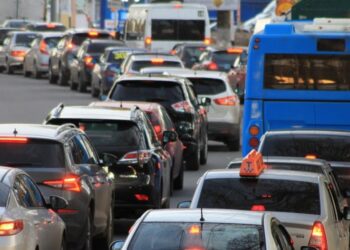Kenya Revenue Authority (KRA) is a government organization in charge of the assessment, accounting, and collection of all revenues that are due. KRA tax refund is a reimbursement of excess tax paid in a given period. This arises when the taxpayer remits more than they should to the government. As a taxpayer you can get a tax refund on your income if the tax that you owe is less than the sum of the required total amount of the withholding taxes plus the estimated taxes that you pay, or the refundable tax credits that you can claim.
Tax refunds are usually paid at the end of the respective year. A person is eligible for income tax refund if the amount paid to the government is more than the actual tax liability. This may happen when the advance tax, tax deducted from the person or self-assessment tax paid, is higher than the total due of the taxpayer.
You may claim an income tax refund of the excess tax deducted or paid during the financial year while filing your tax return for that year. This assessment must be done by 31st July, of each year as per the Income Tax Act, where the fiscal year (FY), immediately succeeding a financial year, is the required assessment year (AY) for that fiscal year.
How do you know when to file for a tax refund
During the process of filing your income tax returns using your P9 form, when you get a negative figure on your returns, then that means you are due for a refund from Kenya Revenue Authority (KRA). That negative amount implies a tax refund. After filing your tax returns, you can then proceed to apply for a refund using the iTax portal with the supporting documents. You will receive a Refund Acknowledgement Receipt Number that you can use to follow up on the status of the tax refund application. All refunds are processed within a maximum period of 90 working days from the day of submission of the income tax refund form for normal refunds.
Who is eligible for KRA tax refund?
A person is eligible to get a tax refund or rebate if the individual has paid or has been deducted excess relative to the amount he/she is supposed to pay. You have to use this service if you have paid too much on; pension payments, a redundancy payment, pay from your current or previous job, a self-assessment tax return, foreign income Interests from savings or PPI, fuel costs or work clothing for your job, etc. The following are the groups of taxpayers in Kenya are eligible for tax refund from KRA.
- An individual who has insurance policies on life and education who has not been granted relief by the employer on the same.
- An individual with a mortgage of home ownership plan from specific financial institutions (as listed on the 4th schedule on Income Tax Act) on owner occupied property who has not been granted relief by the employer on the same.
- A resident individual who was not granted personal relief during the year.
- A person who has paid tax deducted at source in access of final liability.
Requirements for applying for a tax refund
The following requirements are needed in order to apply for a tax refund on the KRA iTax portal.
- KRA PIN number and iTax password to enable you log into the KRA iTax portal.
- Tax deduction card (P9 Form) for claims relating to excess PAYE deductions.
- Insurance policy certificates for claims relating to insurance relief.
- Mortgage certificate from a financial institution for claims relating to interest on mortgage or home ownership plan.
Types of KRA tax refund status
Here are the notifications that KRA uses to indicate the status of your tax refund claim.
- Refund paid: It means that the income tax refund has been processed and sent to you as a cheque or has been directly credited into your bank account.
- Refund failed: This status implies that the refund amount could not be credited because of incorrect bank details.
- Not determined: Implies that the income tax returns have not been processed and you may be required to check income tax status later.
- Refund expired: The refund cheque issued by the income tax department is binding for a period of 90 days. If this time elapses, one is required to get a refund cheque re-issued in his/her name.
How to claim a tax refund from KRA
Ensure you verify if you filled the return form correctly and included personal relief and defined pension before requesting for a tax refund from Kenya Revenue Authority. Immediately after filing a tax return for the respective year, initiate the refund via iTax. To apply for a KRA tax refund, you will have to follow these steps.
- Access KRA iTax Portal.
- Login the portal, using your KRA PIN number. After entering your PIN, click on the “Continue” button. Then proceed to enter your KRA iTax Password and solve the arithmetic question (security stamp). Once done, click on the “Login” button.
- Upon successful login, you will be able to see your iTax Account Dashboard that is loaded with various functionalities.
- Click on the “Refund” button, then select “Income Tax” from the drop-down menu.
- Complete the KRA refund form with the relevant information required:
- Basic info: The basic info part comprises of applicant type, taxpayer PIN and taxpayer name. These field are pre-selected, meaning there is nothing to add here. Click on the “Next” button to proceed to Bank Details.
- Bank details: In this section, you will be required to enter your bank details that includes bank name, branch name, city/town, account name and account number. Basically, where you wish your refund to be sent to. Once you have entered your bank details, click on the “Next” button to proceed to Claim Details.
- Claim Details: Here, you have to select the refund type (normal), description and the refund claim reason. When you select Normal on the refund type, it will load all tax refunds that you currently have due. If you don’t have any tax refund, then no records will be displayed. You need to select the checkbox for the refund period and click on the “Submit” button to submit the Income Tax Refund Application form to KRA for validation and processing.
- Submit your request by clicking the “Submit” button.
- After submitting the refund application form, you can download the refund acknowledgement receipt, for your records. You will receive a Refund Acknowledgement Receipt number that you can use to follow up on the status of the Tax Refund application.
- The tax refunds are usually made in two different ways, which is the same for all the taxpayers namely:
- Paper cheques: A standard paper cheque issued.
- RTGS/NECS: Direct credit of the tax refund is made to the bank account of the taxpayer.
- If KRA does not refund all the amount including VAT refundable, the amount will be automatically deducted from your due tax when you are filing income returns for the subsequent year.
















Been doing it for the last 4yrs with no refund even after providing them with my bank account details.